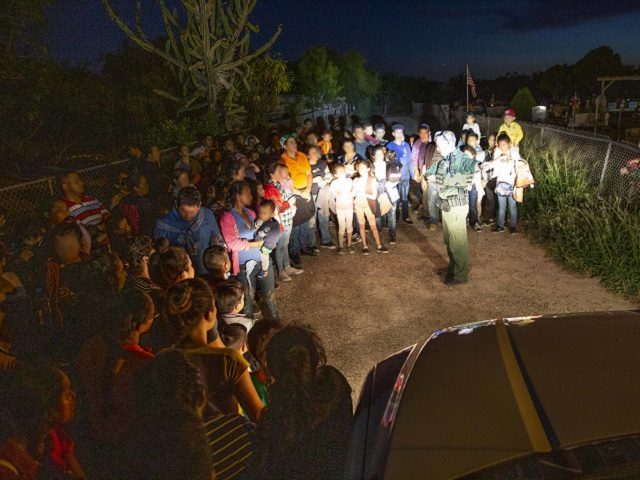Last week, the U.S. Citizenship Act of 2021 was submitted to Congress as the first major immigration-related legislation of the Biden Administration. It consists of more than 350 pages of amendments to existing federal laws.
The first action out of the gate focuses on terminology: every reference to the word “alien” in existing statutes are removed and replaced with the word “non-citizen.”
The bill ponders amnesty for more than 11 million illegal immigrants in the United States who have been physically present since or before January 1, 2021. It also creates and funds a slew of programs like economic incentives to improve education and employment opportunities for Central American asylum seekers and refugees.
The bill allocates $4 billion to tackle what the White House considers are root problems for irregular migration. Funds are dedicated to address extensive poverty, provide workforce development, school safety, teacher training, and small business resources in Central America.
Social Security cards and work authorization permits are made available to applicants. Tax dollars are also earmarked for domestic advertising campaigns to promote the amnesty offer. Community centers offering legal advice are also promised.
Catch-and-Release becomes federal law. Section 4305, Alternatives to Detention, allows asylum applicants released along the U.S. border to be placed in community supervision programs. Local communities–not ICE—would account for the supervision and whereabouts of newly released migrants.
The bill authorizes federal grants to assist public school districts to improve educational opportunities for asylum seekers. It also provides grants to communities to offer workforce training. The bill prohibits universities from charging out of state tuition.
The mere promise of the legislation is a signal to economic migrants abroad that now is the time to find a way to the United States. History has shown, especially under the Immigration Reform and Control Act of 1986 (IRCA), that eligibility or lack thereof can at times be hard to prove. More than three million illegal immigrants applied for amnesty under IRCA. It was designed to provide amnesty for those physically present in the United States prior to 1982 and to those who had worked in agriculture for a total of 90 days. The bipartisan measure also boosted the ranks of the Border Patrol. Added in were enforcement provisions that sanctioned employers who hired illegal immigrants in the future. Those sanctions ultimately proved to be a bust.
Estimates of the level of fraud under IRCA varied, but to Border Patrol Agents working at the time, it was obvious. The current legislation would provide equal opportunity to game the system based upon the sheer volume of anticipated applications.
Some past amnesty recipients who were arrested by Border Patrol for human trafficking or narcotics smuggling demonstrated little knowledge about agricultural work. As part of the criminal case files, these frauds were documented. Facing political pressure, suspects were ultimately convicted on smuggling matters alone.
If enacted today, the volume of applications would surely result in a rubber-stamp approval process, much like what was seen in the 1980s. As a result of IRCA, fly by night immigration consultants quickly opened businesses to capitalize on the application process. In some instances, undercover investigators with the Border Patrol posed as amnesty seekers who were clearly ineligible. In some cases, they were turned away. In others, they were sold fraudulent documents to bolster claims of eligibility. The latter cases resulted in the arrests and prosecutions of the business owners.
The fraudulent operations from the 1980s risk being repeated under the Biden plan. The requirement to have been physically present in the U.S. prior to January 1, 2021 will be easily defeated with a fraudulent rent receipts or other witness statements. Investigating every single claim of eligibility beyond face value information would be insurmountable, given the expected volume of cases.
The COVID-19 pandemic is brushed aside under the proposed bill. The legislation does not address testing or vaccinations for new arrivals at the border.
The U.S. Citizenship Act of 2021, in sum, exacerbates some of the most broken elements of the American immigration system and ignores lessons from the recent past.
Randy Clark is a 32-year veteran of the United States Border Patrol. Prior to his retirement, he served as the Division Chief for Law Enforcement Operations, directing operations for nine Border Patrol Stations within the Del Rio, Texas Sector.

COMMENTS
Please let us know if you're having issues with commenting.